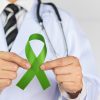When it comes to cancer prevention, your most powerful protection starts on your plate. Instead of relying on dietary supplements, focus on getting your nutrients from a healthy, whole-food diet.
The supplement industry has experienced significant growth over the last decade. As our lives become busier and health awareness grows, more people are turning to supplements for quick and convenient nutrition to meet their dietary needs. This shift continues to significantly influence both the pharmaceutical and healthcare retail sectors.
As the supplement industry has grown, so too have its marketing claims. Many products are now advertised as tools to not only nourish the body but also to prevent serious diseases, including cancer. This raises a critical question: Can a pill truly offer a shortcut to prevention?
Taking a deeper look at it, vitamin C is rightly celebrated for its antioxidant properties, which help protect cells from damage linked to aging and diseases like cancer. While Vitamin C from fruits and vegetables is highly beneficial, studies show that high-dose Vitamin C supplements offer no clear evidence of reducing cancer risk. In some cases, they might even upset the body’s natural balance and cause harm. For this reason, a diet rich in colorful fruits and vegetables is a far more effective and safer way to get the antioxidants your body truly needs.
Despite its popularity, recent studies have found no strong evidence that taking vitamin D supplements reduces breast cancer risk or slows tumor growth. Furthermore, because vitamin D is a fat-soluble vitamin—meaning it’s stored in the body’s fat—excessive intake through supplements can lead to toxicity.
Recent randomised controlled studies on vitamin D and breast cancer have found no significant evidence that vitamin D reduces cancer risk or slows tumor growth. Additionally, because vitamin D is fat-soluble, excessive intake through supplements can lead to toxicity.
Dietary supplements are intended to support health by filling nutritional gaps, not to replace a balanced diet or act as cures. For those with deficiency, getting it from supplements is necessary, but with following advice from a qualified health professional. The best way to reduce cancer risk is still through a healthy, balanced diet rich in whole foods and adopting healthy lifestyle, rather than relying on pills.
Navigating meals as a cancer fighter can be challenging. Our team of dietitians is ready to offer the support you need. Contact us to schedule a consultation!
References:
- Efficacy of Vitamin C Supplements in Prevention of Cancer: A Meta-Analysis of Randomized Controlled Trials – PMC
- Effect of Vitamin D and Calcium Supplementation on Cancer Incidence in Older Women: A Randomized Clinical Trial | Cancer Screening, Prevention, Control | JAMA | JAMA Network
- Impact of Dietary Supplements on Clinical Outcomes and Quality of Life in Patients with Breast Cancer: A Systematic Review – PMC






